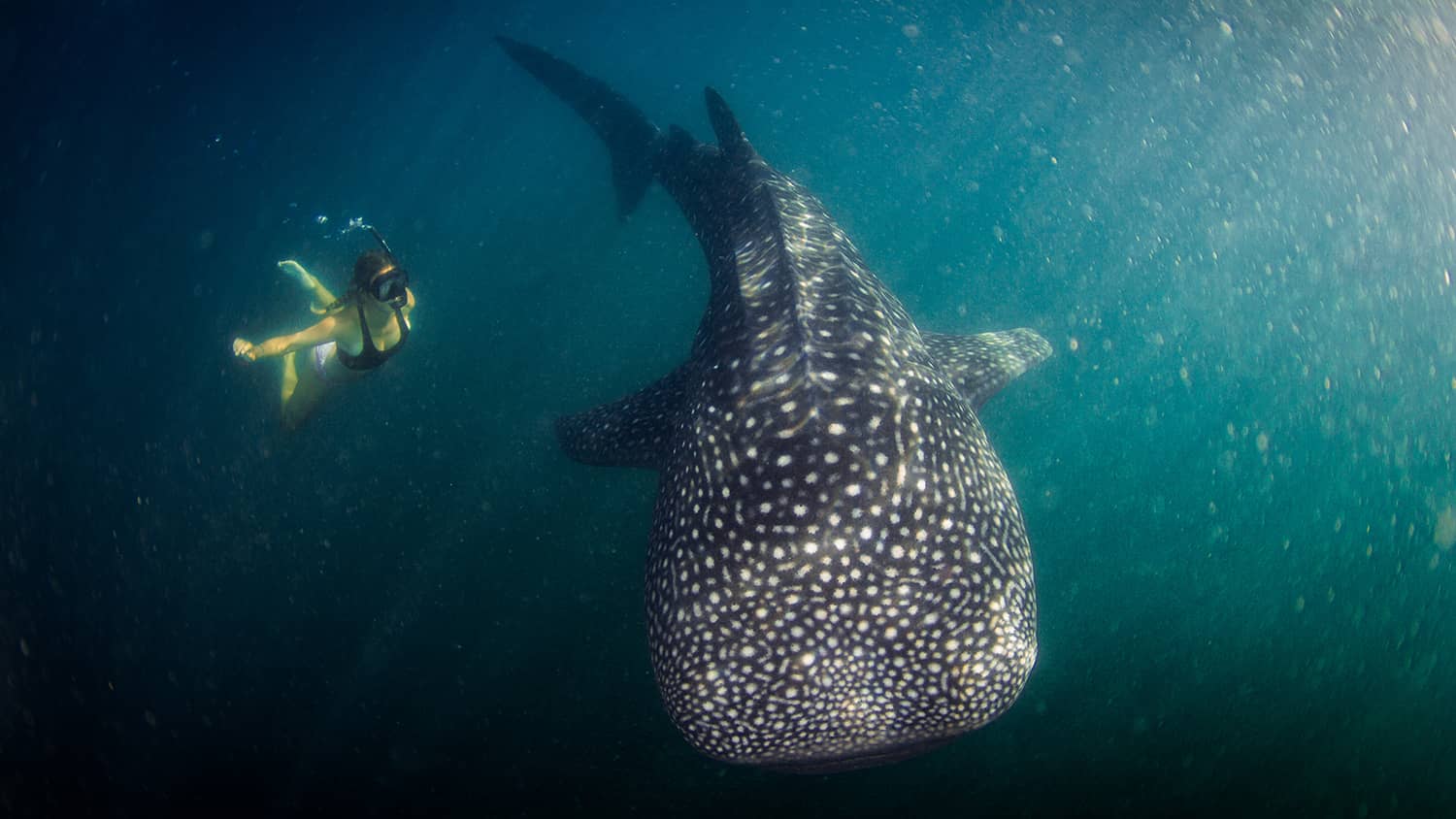Sumbawa, an island in Indonesia, is a hidden paradise that boasts some of the most breathtaking marine life in the world. Among its most awe-inspiring residents is the Sumbawa whale shark (Rhincodon typus), the largest fish in the ocean. These gentle giants have captured the hearts of marine enthusiasts and eco-tourists alike, offering unforgettable experiences in their natural habitat. In this article, we will explore the fascinating characteristics of the Sumbawa whale shark, the best times to encounter them, and the importance of sustainable tourism practices that protect these magnificent creatures.
Understanding the Sumbawa Whale Shark
The Sumbawa whale shark is a filter-feeding carpet shark that can grow up to 18 meters (59 feet) in length. Despite their massive size, they are known for their docile nature and are often seen swimming gracefully near the surface of the water. These gentle giants primarily feed on plankton, small fish, and other tiny marine organisms, making them a vital part of the marine ecosystem.
Unique Features of the Sumbawa Whale Shark
- Distinctive Patterns: Each whale shark has a unique pattern of spots and stripes, much like a human fingerprint. This allows researchers to identify individual sharks and track their movements over time.
- Gentle Giants: Unlike many other shark species, whale sharks pose no threat to humans. They are known for their calm demeanor and often allow snorkelers and divers to swim alongside them.
- Migration Patterns: Sumbawa whale sharks are known to migrate to various locations in search of food. Their presence in Sumbawa is typically observed from April to October, making this the best time for encounters.
The Best Time to Encounter Sumbawa Whale Sharks
The peak season for spotting Sumbawa whale sharks is during the warmer months, particularly from April to October. During this time, the waters are rich in plankton, attracting these gentle giants to the area. Tour operators in Sumbawa offer guided tours that provide visitors with the opportunity to swim and snorkel alongside these magnificent creatures.
What to Expect on a Whale Shark Tour
- Guided Experiences: Tour operators in Sumbawa provide knowledgeable guides who ensure that visitors have a safe and enjoyable experience while adhering to ethical guidelines for interacting with whale sharks.
- Snorkeling and Diving: Participants can snorkel or dive in the crystal-clear waters of Sumbawa, providing an unforgettable experience as they glide through the water alongside whale sharks.
- Marine Education: Many tours include educational components, teaching participants about the biology and behavior of whale sharks, as well as the importance of marine conservation.
The Ecological Significance of Sumbawa Whale Sharks
Sumbawa whale sharks play a crucial role in maintaining the health of marine ecosystems. As filter feeders, they help regulate plankton populations, contributing to the overall balance of the marine food web. Their presence in Sumbawa not only attracts tourists but also supports local fisheries and promotes biodiversity.
Conservation Efforts
Despite their importance, whale sharks face numerous threats, including habitat destruction, fishing, and climate change. In response, various conservation initiatives have been established to protect these magnificent creatures and their habitats. Local communities, NGOs, and government agencies are working together to promote sustainable practices that ensure the long-term survival of Sumbawa whale sharks.
The Role of Sustainable Tourism
Sustainable tourism is essential for the protection of Sumbawa whale sharks and their environment. By choosing to participate in ethical tours, visitors can contribute to conservation efforts while enjoying the beauty of Sumbawa. Here are some key principles of sustainable tourism in the region:
- Responsible Interaction: Tour operators emphasize the importance of non-invasive interactions with whale sharks, ensuring that visitors maintain a safe distance and do not disturb the animals.
- Community Involvement: A portion of the revenue generated from whale shark tourism is reinvested into local communities, supporting education, healthcare, and conservation initiatives.
- Environmental Awareness: Educational programs raise awareness about the importance of marine conservation and the role of responsible tourism in protecting whale sharks and their habitats.
How to Prepare for Your Whale Shark Adventure
If you’re planning a trip to Sumbawa to encounter the Sumbawa whale shark, here are some tips to ensure a memorable experience:
- Choose the Right Tour Operator: Research and select a reputable tour operator that prioritizes ethical practices and has experienced guides.
- Pack Essential Gear: Bring snorkeling gear, sunscreen (preferably reef-safe), a hat, and a waterproof camera to capture the incredible moments.
- Stay Hydrated: The tropical climate can be hot, so make sure to drink plenty of water before and during your tour.
- Be Respectful: Follow the guidelines provided by your tour operator to ensure the safety of both yourself and the whale sharks.
The Sumbawa whale shark offers a unique and unforgettable experience for those seeking to connect with nature and witness the beauty of these gentle giants. By participating in ethical tourism practices, visitors can contribute to the conservation of whale sharks and their habitats while enjoying the stunning marine biodiversity that Sumbawa has to offer. As we continue to explore and appreciate the wonders of the ocean, let us also commit to protecting these magnificent creatures for generations to come.
